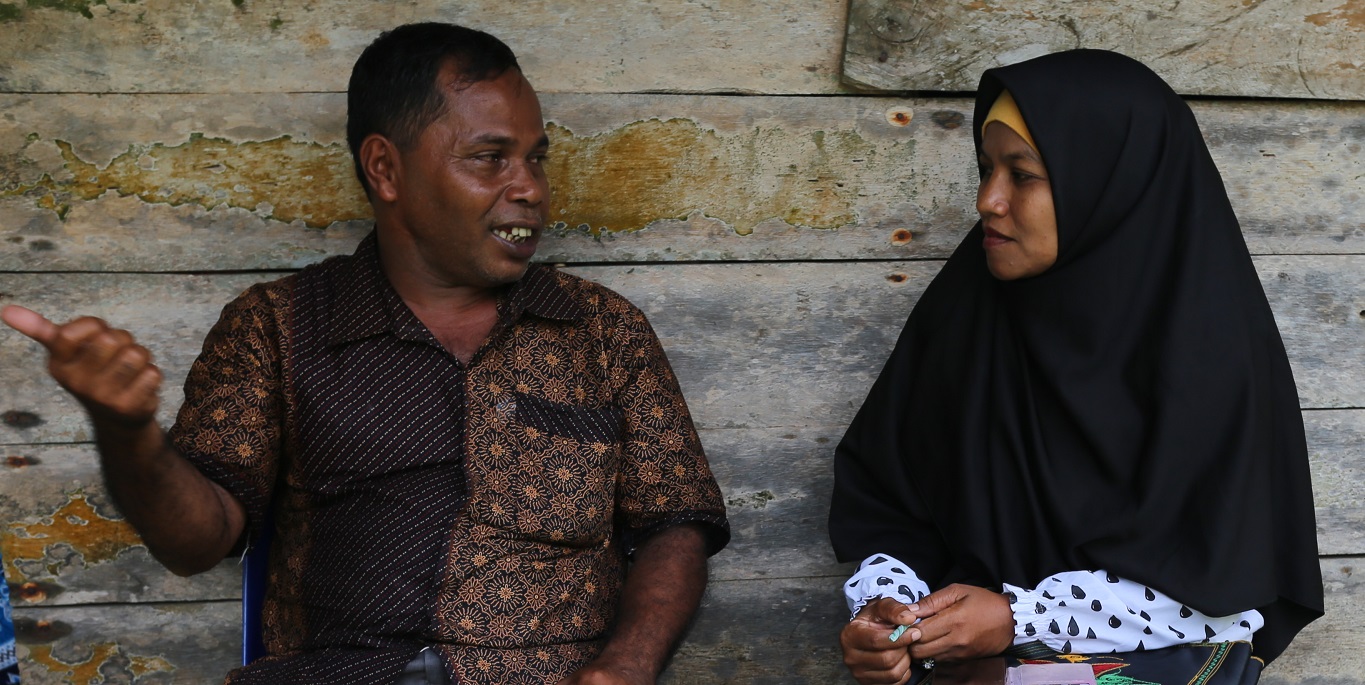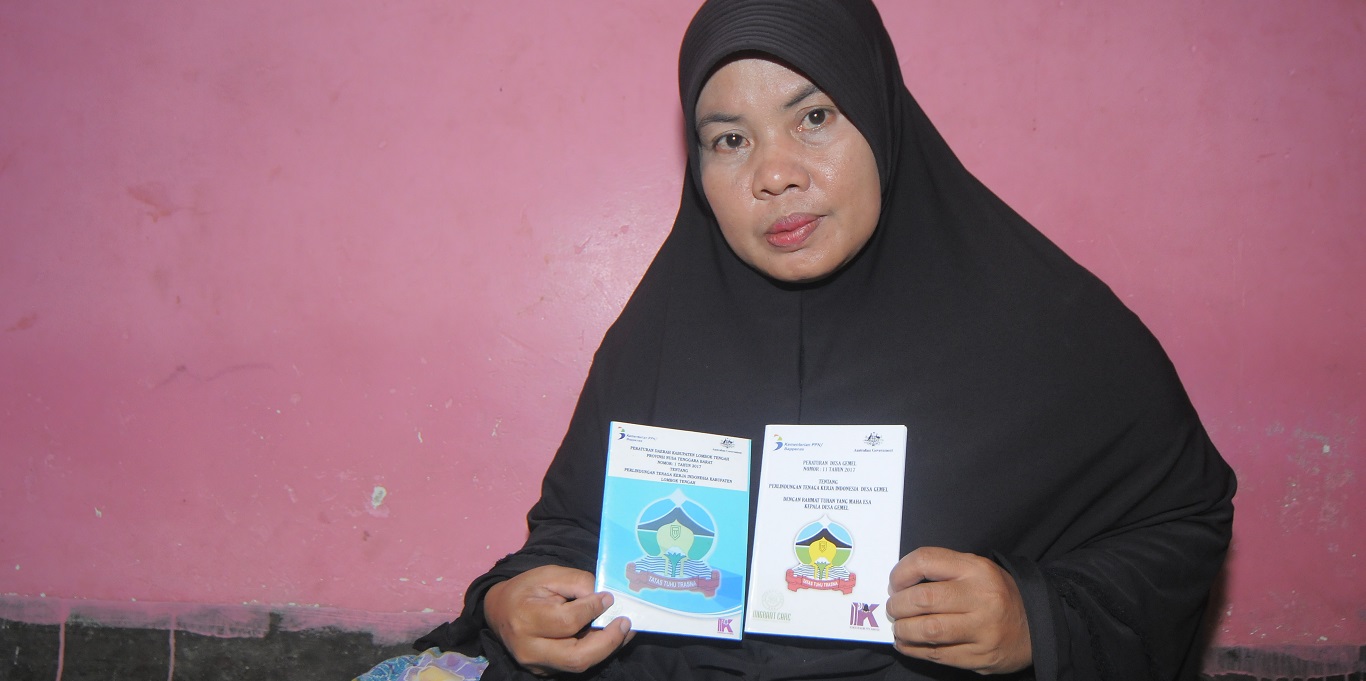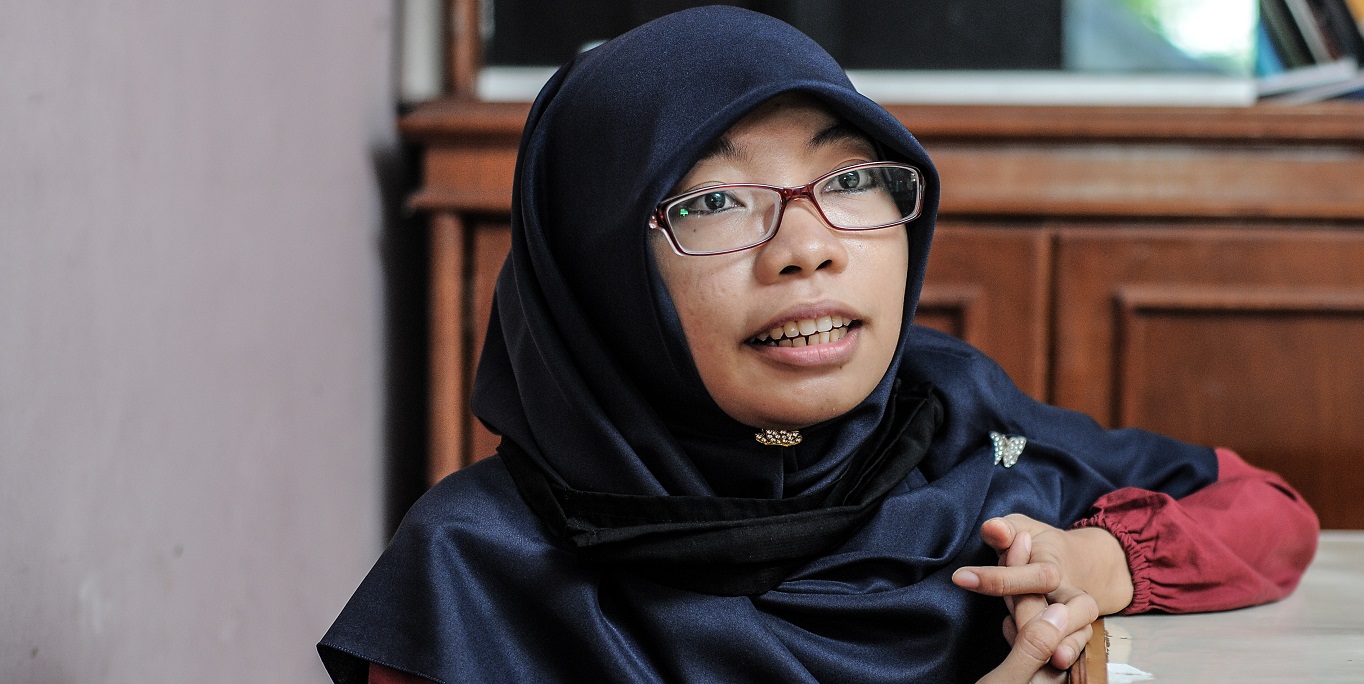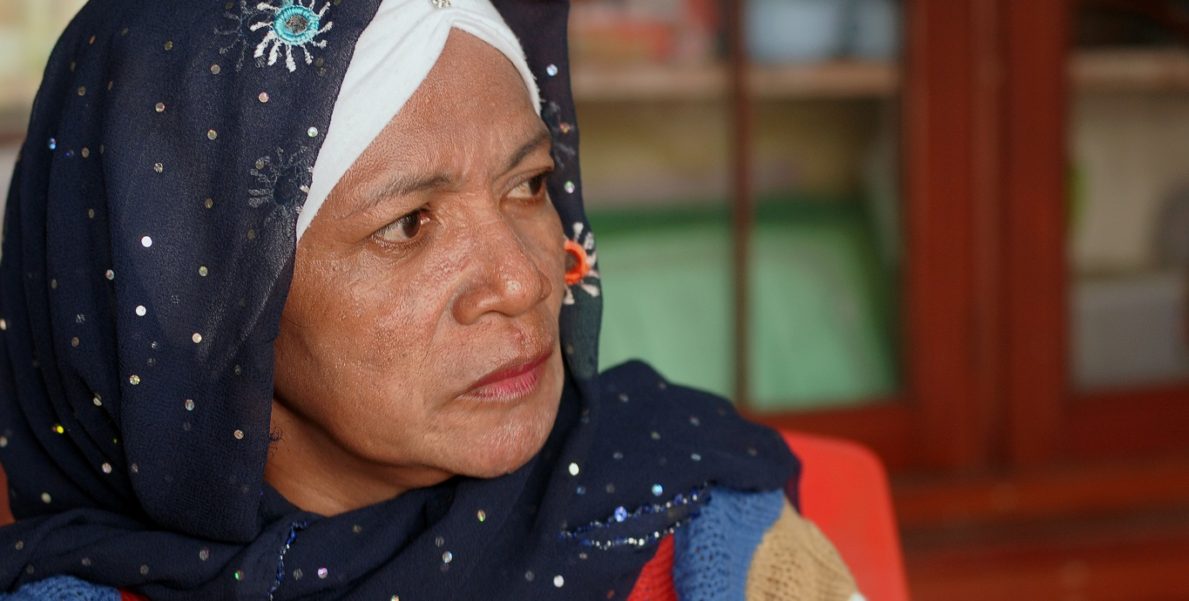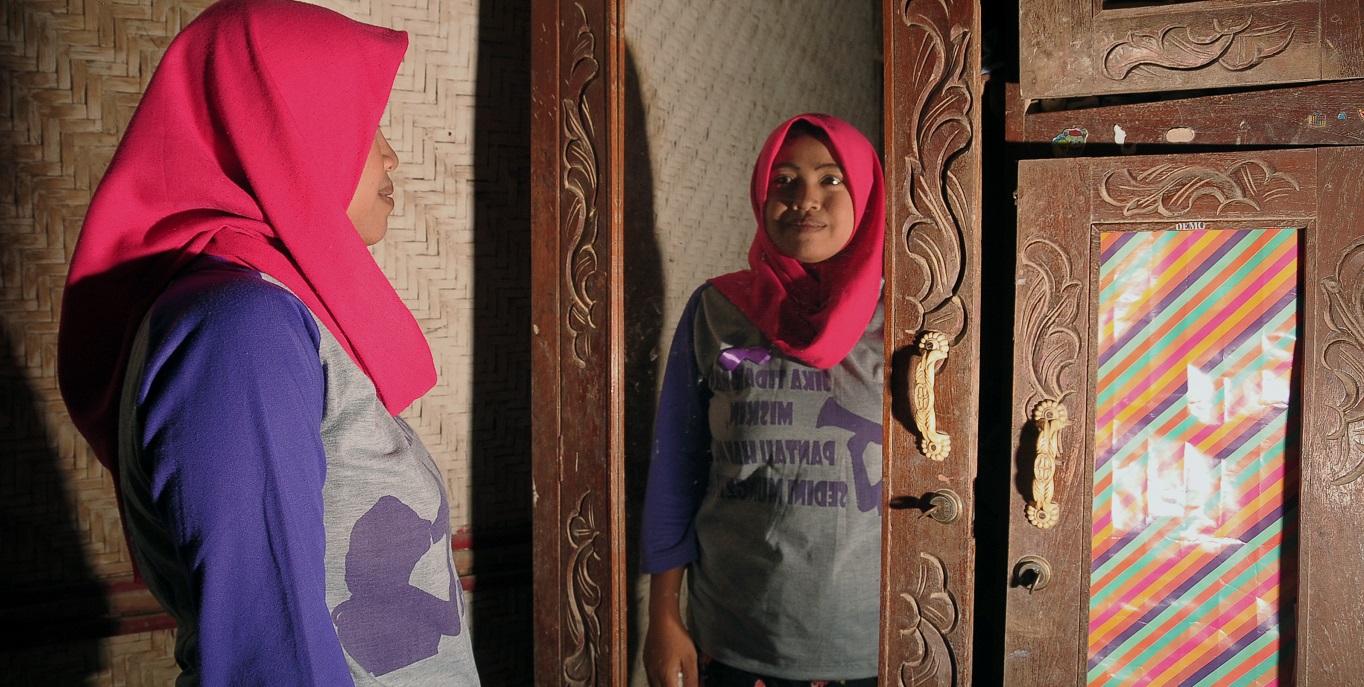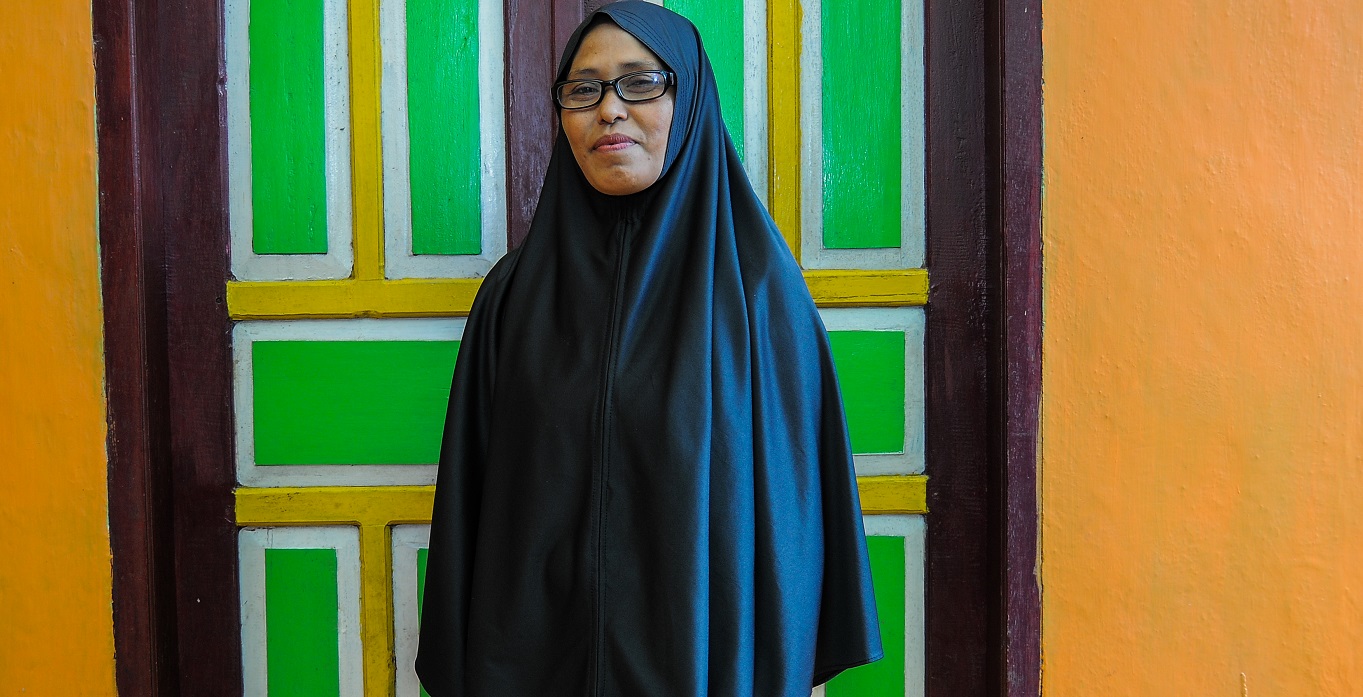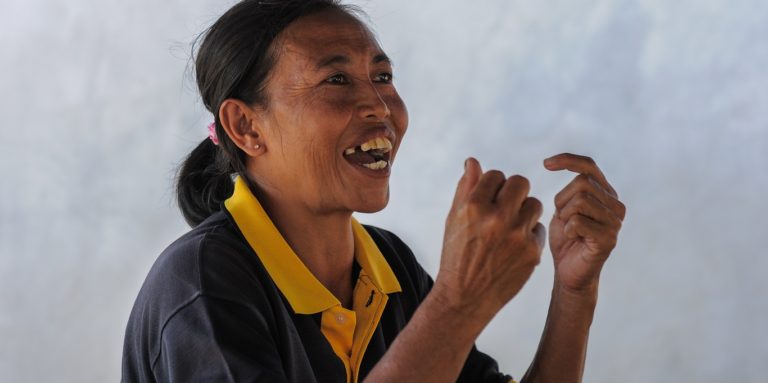Stories
Kelompok Usaha Kecil Mantan Buruh Migran
9 May 2018Penulis: admin
Former migrant workers who have been given insights into how to empower themselves in their own villages, are now able to set up their own businesses, such as: making snacks which are packaged and sold. As for cultivating land near their homes, there are snakefruit, durian, Albizia legumes and other crops that can be processed and commercialized.
The presence of the MAMPU Program provides the infrastructure for regular meetings which are used to explore the women’s skills and insights so that they can be self-employed and work together after returning from abroad. This means they do not need to go overseas again.
The former migrant workers are given training in the skills for creating a home industry and, for this purpose, they are divided into several groups. Each group is the average of six or seven members. For example, there are groups working on producing batik, tempe (soya bean cake), instant tiwul, candles and snakefruit in syrup.
These processes are carried out in their houses, and especially for dyeing batik cloth, this is done once a week at the home of Muliah who was a migrant worker in South Korea.
Anissa Hanifa, who supports the former migrant workers, says that to produce snacks, the ingredients are quality assured and safe. Although these products are created at home, standards have to be conformed to by the participants. For example, ingredients for sweetening the syrup for snakefruit must use specific sugar and the purchases must use a letter of recommendation from the Ministry of Health. They use Raffinasi sugar which is certified to guarantee health and safety.
Food packaging is carried out in a hygienic way and therefore it is done jointly (in a cooperative) because the available equipment is still limited.
Marketing is still done through food stalls or shops by entrusting stock to the traders. Some are sold through exhibitions, markets and other public events. Many also market their own produce. For example, they sell to their friends, associates and others.
There are many women in Wonosobo who are former migrant workers and who have restaurants and cafes. Among them is Maria who sells the products of other ex migrant workers in her store. Meanwhile, Tuti Astuti makes use of the skills she obtained from working abroad to sell children’s snacks and to work as a tailor in her home.
Anissa Hanifa, who had a job as a migrant worker in Malaysia, has now become a migrant workers activist in addition to running her salon business in her house which is always busy with customers. She does not hesitate to share her skills with the other women who are former migrant workers so that they can start businesses after returning from abroad.
“There are those who have successfully opened their own salons and also others producing things to order,” said Anissa.
The small business group is being coordinated and fostered by Siti Mariam Ghozali. Every day, She runs a shop that handles the home industry produce. In running her business, she did cooperation with various parties, such as cooperatives, the Training Center and the Training Courses Institute.
“Besides selling them at this stall, the products of the ex migrant workers are sold in the market and door to door,” she said.



